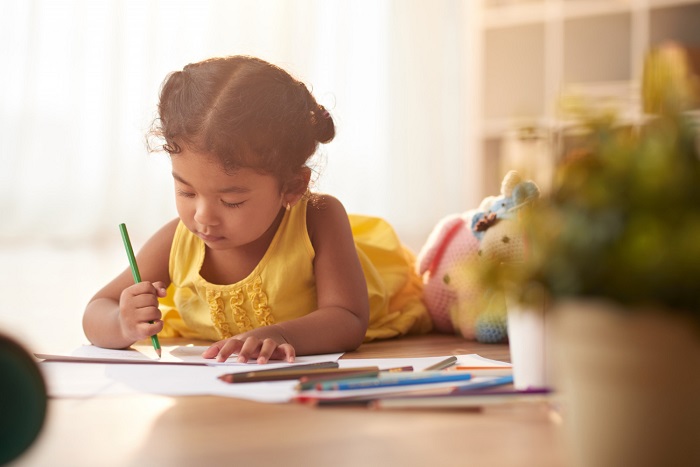Enhancing Parent-Teacher Communication in Preschools
For preschoolers to develop successfully, parents and teachers must communicate effectively with one another. It creates a solid collaboration that encourages an encouraging learning environment. In this post, we’ll look at some useful advice for improving parent-teacher communication in early childhood settings. By fostering a cooperative connection, these techniques will make it possible for parents to take an active role in their children’s education.
- Establish Open Channels of Communication
- Schedule Regular Parent-Teacher Meetings
- Share Information and Updates
- Listen Actively and Empathetically
- Celebrate Achievements and Progress
- Address Concerns Promptly and Professionally
Establishing transparent and approachable channels is essential to facilitating efficient parent-teacher communication. Different channels, such as in-person meetings, phone conversations, emails, newsletters, and online platforms, are available from teachers. Teachers encourage parents’ active participation by taking into account their various communication preferences. Building trust and rapport also involves making sure parents are aware of how to get in touch with teachers and setting aside time for conversations.
Effective parent-teacher communication in preschool requires open and accessible channels of communication. Teachers should create a number of channels via which parents can quickly contact them and communicate their ideas, worries, and inquiries. Meetings in person during drop-off or pick-up times, calls, emails, newsletters, or the usage of class-specific internet platforms are all examples of how this might be done. Providing a variety of communication channels allows teachers to accommodate varied learning styles and preferences.
Meetings in person on a regular basis between parents and instructors strengthen their relationship. These meetings give parents the chance to talk about their child’s development, strengths, areas for growth, and any worries. It is essential to schedule meetings at convenient times and give them enough time to allow for fruitful discussions. The best teachers plan ahead, gather pertinent data, and provide concrete examples to back up their observations. This aids parents in getting a thorough grasp of their child’s growth.
A child’s growth and overall development can be discussed in depth during scheduled parent-teacher conferences. To keep lines of communication open and enable a thorough exchange of information between parents and teachers, these meetings should be held frequently. scheduling meetings before or after school hours, or at other times that are convenient for both parties.
Parents value receiving timely information about their preschooler’s experiences and development. Updates can be shared often by teachers via class-specific web platforms, emails, or newsletters. This might include information about the lessons being taught, future activities, updates to the curriculum, and reminders. Sharing specific tales or images that showcase a child’s accomplishments or milestones can improve the relationship between parents and teachers even further.
To keep parents informed and involved, regular and open communication about activities, events, and the child’s progress is crucial. Teachers can use a variety of media, such as weekly or monthly newsletters, emails, or class-specific internet platforms, to disseminate information and updates. These communication channels offer the chance to spread crucial information about future occasions, curriculum modifications, and prompts for parents to continue being active and aware.
Teachers can further build the parent-teacher relationship by giving personalised anecdotes or images that emphasise a child’s accomplishments or noteworthy events in the classroom in addition to generic information. These peeks into the child’s daily activities foster involvement and enable parents to see the development of their child. The teacher’s attention to each child’s growth is also communicated by the sharing of such intimate and significant stories or imagery, which gives parents a sense of being cherished.
Active and sympathetic listening is a requirement for effective communication. Teachers ought to provide a judgement-free environment where parents can voice their ideas, worries, and hopes for their kids. Teachers can comprehend parents’ viewpoints, anxieties, and expectations by showing genuine interest and empathy. Giving parents your full attention, keeping eye contact, and displaying appropriate body language are all parts of active listening. Validating parents’ worries and providing constructive criticism deepens the partnership by fostering trust.
Effective parent-teacher communication is built on active, compassionate listening. Parents should feel free to voice their ideas and worries in a welcoming and nonjudgmental environment created by teachers. This can be done by paying parents full attention throughout dialogues, keeping eye contact, and exhibiting open and encouraging body language.
Effective communication requires constructive criticism. Feedback from teachers should be specific, useful, and centred on the child’s growth and development. Given the emotional well-being of both the child and the parents, this criticism should be given in a courteous and encouraging way.
Fostering a strong parent-teacher connection depends on recognizing and applauding a child’s accomplishments. Every child’s efforts and growth should be recognized and celebrated by teachers, who should also inform parents about these achievements. This can be accomplished by verbal compliments, written notes, or achievement certificates. A child’s confidence is boosted by celebrating accomplishments, which also highlights the collaborative element of the parent-teacher relationship.
A strong strategy to create a happy and supportive environment in preschool is to recognize and celebrate a child’s accomplishments and milestones. Each student’s efforts and progress should be actively recognized by teachers, who should also give regular praise and comments.
Verbal praise is a straightforward but powerful way to acknowledge accomplishments. Teachers can increase students’ confidence and inspire them to work harder by giving them specific compliments and highlighting their talents.
Parents could be worried or wonder about their child’s growth, behaviour, or academic performance. Teachers must respond to these issues quickly and properly. Respecting parents’ opinions and addressing any concerns they may have can be shown by promptly responding to their questions. When appropriate, teachers should propose further assessments or resources and should give clear explanations and support measures. The parent-teacher relationship is strengthened when issues are handled professionally and sympathetically.
A successful parent-teacher relationship depends on swiftly and properly responding to parental concerns. It’s crucial for instructors to react quickly when parents raise concerns about their child’s growth, behaviour, or academic progress.
Teachers ought to handle these issues with compassion and comprehension. Teachers foster a supportive environment where parents feel at ease airing their anxieties by acknowledging parents worries and exhibiting understanding. A caring and competent response reassures parents that their child’s welfare is a top priority and helps allay any fears they might be experiencing.
A cooperative and encouraging learning environment in preschool requires effective parent-teacher communication. Teachers may improve parent-teacher communication and forge a solid partnership by creating open lines of communication, setting up frequent meetings, providing information and updates, listening attentively and sympathetically, recognizing accomplishments, and responding to concerns right away. Together, parents and teachers can support the holistic growth and success of every child by exchanging knowledge, skills, and encouragement.
Visit our website to find out more about preschool education and how EuroKids encourages productive parent-teacher collaboration. Discover why EuroKids is a reputable option for early childhood education by learning about our nurturing atmosphere, cutting-edge curriculum, and committed teachers.















